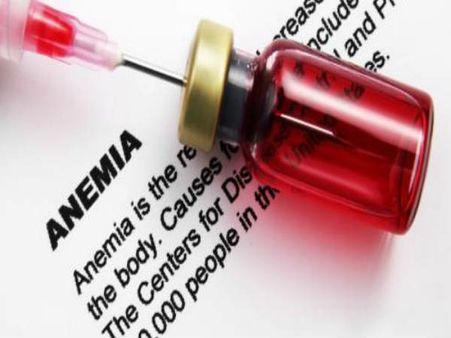Just In
- 3 hrs ago

- 4 hrs ago

- 8 hrs ago

- 12 hrs ago

Don't Miss
- Finance
 Emmforce Autotech IPO Debut April 23: Issue Size, Price Band, Check Details?
Emmforce Autotech IPO Debut April 23: Issue Size, Price Band, Check Details? - Education
 NLSIU Announces the Rajiv K. Luthra Foundation Grant
NLSIU Announces the Rajiv K. Luthra Foundation Grant - Technology
 Dell Introduces AI-Powered Laptops and Mobile Workstations for Enterprises in India
Dell Introduces AI-Powered Laptops and Mobile Workstations for Enterprises in India - News
 Electoral Bonds Controversy: Amit Shah Slams Rahul Gandhi, Asks Opposition Too Got Money, Is It Extortion?
Electoral Bonds Controversy: Amit Shah Slams Rahul Gandhi, Asks Opposition Too Got Money, Is It Extortion? - Movies
 Main Ladega, Mary Kom, Toofan - 5 Bollywood Boxing Dramas You Need To Watch
Main Ladega, Mary Kom, Toofan - 5 Bollywood Boxing Dramas You Need To Watch - Sports
 T20 World Cup: 'He will definitely be in my list' - Anjum Chopra handpicks 2 wicketkeeper-batters for India squad
T20 World Cup: 'He will definitely be in my list' - Anjum Chopra handpicks 2 wicketkeeper-batters for India squad - Automobiles
 Tata Motors To Manufacture Jaguar Land Rover Cars In Billion Dollar TN Plant - Report
Tata Motors To Manufacture Jaguar Land Rover Cars In Billion Dollar TN Plant - Report - Travel
 Journey From Delhi To Ooty: Top Transport Options And Attractions
Journey From Delhi To Ooty: Top Transport Options And Attractions
How Weight Loss Surgery Increases Anaemia Risk? Other Risk Factors For Anaemia
Did you know that weight loss surgery can increase the risk of anaemia? Also, read to know its other risk factors.
According to a new study, it was found that weight loss surgery can increase the risk of anaemia by almost two-folds.
The researchers suggested that the patients need to be more conscious about taking nutritional supplements post the surgery, as their digestive system changes after this.
It can also cause dizziness, light-headedness, weakness and heart palpiations as well as brittle nails and headache.
This can lead to iron and vitamin B12 deficiencies and it affects the movement of oxygen to the lungs.

The researchers suggested that after the surgery, there must be a follow-up consultation with bariatric specialists, even after five years. This can reduce long-term anaemia risk.
They also insisted that, the study needs to further explore how weight loss surgery impacts the blood system, as the number of obese people going under the knife has increased significantly.


In this article, we have also listed the other risk factors for anaemia that you need to be aware of. Read further to know more.

1. A Diet Lacking In Certain Vitamins:
Having a diet that is consistetly low in iron, vitamin B12 and folate can increase your risk of anaemia.

2. Intestinal Disorders:
Having any kind of intestinal disorder affects the absorption of nurtrients into the small intestine. This can put you at a risk for anaemia.

3. Menstruation:
Women who haven't experienced menopause have a greater risk of iron deficiency than men or post-menopausal women. This is because menstruation causes loss of red blood cells. This is one of the top risk factors for anaemia.

4. Family History:
If your family has an inherited history of anaemia, then you may be at an increased risk of this condition. This is one of the major risks for anaemia.

5. Other Factors:
A history of certain infections, blood diseases, autoimmune disorders, alcoholism, exposure to toxic chemicals and the use of some medications can affect the red blood cell production and lead to anaemia.
-
 disorders cureCan Periods Lead To Anaemia? Who Is At Risk?
disorders cureCan Periods Lead To Anaemia? Who Is At Risk? -
 kidsSigns And Symptoms Of Anaemia In Children
kidsSigns And Symptoms Of Anaemia In Children -
 disorders cureAnaemia In Men: Possible Causes And Symptoms
disorders cureAnaemia In Men: Possible Causes And Symptoms -
 postnatalDoes Iron Deficiency Anaemia Affect Breastfeeding? Causes, Impacts, Risk Factors And Preventions
postnatalDoes Iron Deficiency Anaemia Affect Breastfeeding? Causes, Impacts, Risk Factors And Preventions -
 wellnessWhy Women Should Include Mangoes In Their Diet - 10 Evidence-Based Reasons
wellnessWhy Women Should Include Mangoes In Their Diet - 10 Evidence-Based Reasons -
 nutritionWhy Should You Consume Dates Soaked In Milk?
nutritionWhy Should You Consume Dates Soaked In Milk? -
 wellness11 Evidence-Based Health Benefits Of Arjuna
wellness11 Evidence-Based Health Benefits Of Arjuna -
 wellnessWhat Are The Healthy Food For Teenage Girls?
wellnessWhat Are The Healthy Food For Teenage Girls? -
 wellnessFrom Diabetes And Anaemia To Hypothyroidism, Know About The Causes Of Cold Feet
wellnessFrom Diabetes And Anaemia To Hypothyroidism, Know About The Causes Of Cold Feet -
 prenatal11 Iron-Rich Foods For Pregnant Women
prenatal11 Iron-Rich Foods For Pregnant Women -
 wellnessBeta-thalassemia: Causes, Symptoms, Risk Factors, Treatment and Prevention
wellnessBeta-thalassemia: Causes, Symptoms, Risk Factors, Treatment and Prevention -
 wellness17 Signs And Symptoms Of Iron Deficiency
wellness17 Signs And Symptoms Of Iron Deficiency


 Click it and Unblock the Notifications
Click it and Unblock the Notifications



